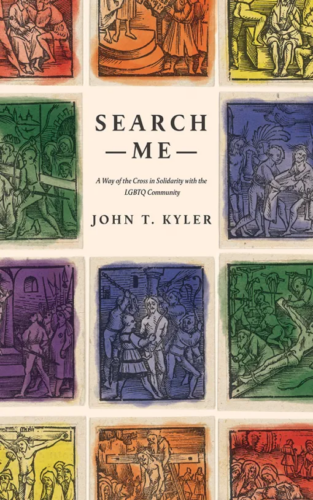It’s the holiday season, and maybe you’re feeling anxious about going home. Maybe you’re asking yourself: Will I feel like myself around my parents? Should I tell Grandpa about my partner when he asks who I’m dating? Will my cousins make jokes disparaging LGBTQ people? Can I survive being away from my routines and support system for even a few days?
It can all feel overwhelming. We’re told that the holidays should be restful, a chance to catch up with family and friends and enjoy some time away from the stresses of work or school. But we know that the holidays can be a source of stress for LGBTQ people. They can be awkward, difficult, or even painful and dreadful.
In addition to using techniques developed by mental health professionals to cope with stress, prayer can help LGBTQ people feel peace in tough situations. Reciting beloved prayers like the Lord’s Prayer or the Hail Mary can help bring down the temperature and give you peace.
In the Jesuit tradition, prayer can also be a chance to remove yourself for a moment from your situation and immerse yourself in a scene from Jesus’ life. A way to approach this style of prayer is to let this scene play out in your imagination and then see if something from the experience resonates with your own situation. I offer this guided meditation for those feeling rejected and misunderstood by loved ones this holiday season. And for those who want a shorter prayer, feel free to skip to the part in italics.
First, I open the prayer in the name of the Father, and of the Son, and of the Holy Spirit.
Then, while taking a few deep breaths, I imagine God looking at me with unconditional love. I bask in this love at the start of my prayer.
Third, I ask the Lord for whatever grace I need. Perhaps it’s patience to deal with misguided family members. Or maybe it’s peace in the face of chaos, security in the face of hostility, courage in the face of fear. Whatever it is, I ask the Lord to give me that grace, confident that God hears the cry of the brokenhearted.
Next, I take some time to contemplate the scripture passage that tells the story of Jesus facing rejection in Nazareth (Luke 4: 14–30). I read the passage slowly two or three times. Then, I place myself in the scene as an onlooker, using my senses to let my imagination bring the scene to life. What do I see as Jesus stands up to proclaim the scripture? What do I hear among the crowd when he reveals his Messianic identity to them? What do I feel when the atmosphere shifts and the crowd moves toward violence against Jesus?
I then let the scene play out in my mind.
After that, I have a conversation with Jesus as a friend or an ally about what I experienced in this prayer. I speak from my heart about what moved me. I listen to what Jesus has to say in return.
I end my conversation with Jesus with these words:
Jesus, I pause for a moment to remember that you intimately know what it was like to face difficulty and rejection at home.
When you revealed yourself as the promised Messiah in your hometown,
you were met with hostility and violence by the people of Nazareth.
What was it like to look into their eyes and see anger, judgment, and even hatred?
What was it like to have your identity questioned and rejected by your friends and family?
What was it like to feel so misunderstood?
I recognize that I can answer those questions myself.
I, too, have faced hostility, misunderstanding, and judgment from family and friends.
Or perhaps just the threat of having my identity rejected keeps me in the suffocating security of the closet.
I remember the rejection you faced and feel a sense of consolation in this shared experience.
When I come to you with my pain, frustration, anger, and sadness, you know what all of that felt like.
And yet, you remained steadfast in your identity.
You did not let their rejection and misunderstanding keep you from fulfilling your mission.
In the face of such hatred, you continued to love.
Teach me to do the same.
Allow me to feel secure in myself.
Give me resilience and fortitude.
And above all, remind me that whatever I face, you love me without condition or hesitation.
At the end of this prayer, I ask myself a couple of questions: Has God given me the grace I asked for? Where do I find myself after this reflection?
Finally, I close my prayer with the Lord’s Prayer and the Sign of the Cross.



